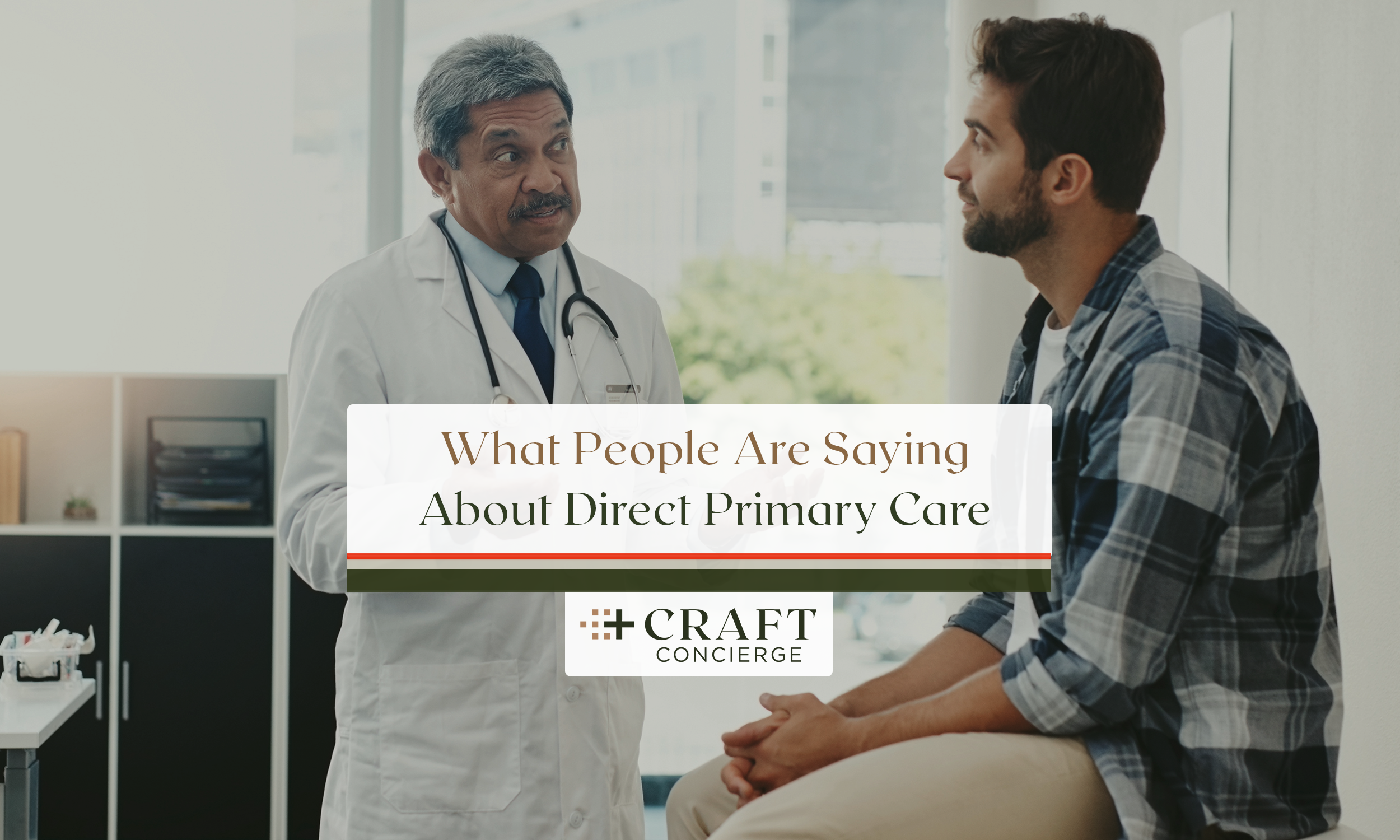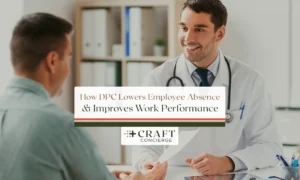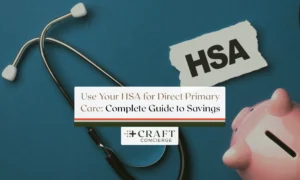As we journey into our golden years, especially after 75, taking charge of our health becomes more important than ever. At Craft Concierge, we believe that aging well isn’t just about adding years to your life but adding life to your years. Preventive screenings play a crucial role in this journey, helping you and your healthcare providers catch potential issues early when they’re often more treatable.
This guide walks you through the essential health screenings that can help you maintain your independence, vitality, and joy well into your later years. Remember, these recommendations are starting points for conversations with your healthcare provider, who can personalize advice based on your unique health history.
Cardiovascular Health: The Heart of the Matter
Blood Pressure Screening
Your heart works tirelessly every day, and keeping tabs on your blood pressure remains essential even after 75. The American Heart Association recommends having your blood pressure checked at least once yearly, with more frequent monitoring if you have a history of hypertension.
High blood pressure often has no symptoms but can lead to serious health problems if left unaddressed. The good news? It’s one of the easiest screenings to perform and can be done during regular doctor visits or even at many pharmacies.
Cholesterol Screening
While guidelines have evolved regarding cholesterol screening in seniors over 75, it remains important for those with cardiovascular risk factors. The National Heart, Lung and Blood Institute suggests cholesterol checks every year for people over 65, especially if you have diabetes, heart disease, or other risk factors.
Your healthcare provider may recommend continuing or adjusting cholesterol-lowering medications based on your overall health and risk profile, taking a personalized approach to your heart health.
Cancer Screenings: Individualized Approaches

As we age, the approach to cancer screenings becomes more nuanced, focusing on personal health history and quality of life considerations.
Colorectal Cancer Screening
For adults between 75 and 85, the decision to continue colorectal cancer screening should be made individually with your healthcare provider. According to the American Cancer Society, factors to consider include your overall health status, screening history, and personal preferences.
If you’ve had regular negative screenings throughout your life, your doctor might recommend discontinuing routine testing after 75. However, if you haven’t been regularly screened before, a screening test might still be beneficial.
Breast Cancer Screening
For women over 75, mammography decisions should be based on individual health status and preferences. The benefit of routine mammograms may decrease after age 75, especially for those who have been regularly screened with normal results.
Have an open conversation with your healthcare provider about the potential benefits and limitations of continued screening, considering your personal risk factors and overall health goals.
Prostate Cancer Screening
Most major medical organizations, including the U.S. Preventive Services Task Force, no longer recommend routine prostate-specific antigen (PSA) testing for men over 70. However, men with particular risk factors might still benefit from selected screening.
If you’re concerned about prostate cancer, discuss your personal risk profile with your doctor to make an informed decision about screening.
Vision and Hearing: Maintaining Your Connection to the World
Comprehensive Eye Exams
Vision changes are common as we age, but some eye conditions can significantly impact quality of life if not detected early. The American Optometric Association recommends annual eye exams for adults over 65 to screen for conditions like glaucoma, macular degeneration, and cataracts.
These exams are especially important if you have diabetes, hypertension, or a family history of eye diseases. Maintaining good vision is crucial for preventing falls and supporting independence.
Hearing Tests
Hearing loss affects nearly half of adults over 75 but often goes unaddressed. Regular hearing screenings can identify changes early, allowing for interventions that help maintain social connections and cognitive health.
Studies have shown that untreated hearing loss is associated with an increased risk of cognitive decline and social isolation. Don’t dismiss hearing difficulties as just “part of aging” – speak with your healthcare provider about getting your hearing tested.
Bone Health and Fall Prevention

Bone Density Testing
Osteoporosis becomes increasingly common with age, especially for women. The National Osteoporosis Foundation recommends bone density testing for all women 65 and older and for men after age 70.
If you’ve already been diagnosed with low bone mass or osteoporosis, your doctor will recommend an appropriate schedule for follow-up testing to monitor your bone health and treatment effectiveness.
Fall Risk Assessment
Falls are a leading cause of injury among seniors, and prevention becomes increasingly important after 75. A comprehensive fall risk assessment evaluates your balance, strength, medication effects, and home safety.
Ask your healthcare provider about a fall risk assessment during your annual wellness visit. Simple interventions, from strength exercises to home modifications, can significantly reduce your risk of falls and maintain your independence.
Mental Health: Nurturing Your Emotional Wellbeing
Depression Screening
Depression is not a normal part of aging but is unfortunately common and often overlooked in older adults. The Geriatric Depression Scale (GDS) is a screening tool specifically designed for seniors that your healthcare provider can use to assess your emotional health.
Symptoms of depression in older adults sometimes differ from those in younger people, often manifesting as physical complaints, memory problems, or simply a lack of interest in activities once enjoyed. Regular screening allows for early intervention and treatment.
Anxiety Assessment
Anxiety disorders affect many seniors and can significantly impact quality of life. Tools like the Generalized Anxiety Disorder scale (GAD-7) can help identify anxiety symptoms that might benefit from treatment.
If you’re experiencing excessive worry, restlessness, or physical symptoms like muscle tension, discuss these concerns with your healthcare provider. Effective treatments are available that can improve your emotional wellbeing.
Metabolic Health: Managing Diabetes Risk
Blood Glucose Screening
The American Diabetes Association makes specific recommendations on screening for adults over 65, depending on a variety of risk factors. Early detection allows for lifestyle modifications and treatments that can prevent complications.
For those already diagnosed with diabetes, regular monitoring of blood glucose levels and hemoglobin A1C remains important for managing the condition effectively.
Comprehensive Geriatric Assessment

As we advance in years, many healthcare providers recommend a comprehensive geriatric assessment – a multidisciplinary approach that evaluates not just physical health but also cognitive function, emotional wellbeing, functional abilities, and social circumstances.
This holistic assessment often reveals interconnected issues that might be missed in standard screenings and helps create a personalized care plan focused on maintaining independence and quality of life.
Taking Action for Your Health
The screenings discussed here are valuable tools for maintaining health, but they’re most effective when paired with healthy lifestyle choices. Regular physical activity, nutritious eating, social engagement, and mental stimulation all contribute significantly to healthy aging.
At Craft Concierge, we’re committed to supporting your journey toward healthy aging through personalized guidance and services that address your unique needs. We believe that preventive care becomes even more important as we age, not less.
Remember that screening recommendations should always be personalized based on your health history, current health status, and personal preferences. The best approach is to maintain an ongoing dialogue with your healthcare provider about which screenings are right for you.
Partner with Craft Concierge for Your Wellness Journey

Navigating health screenings and preventive care can sometimes feel overwhelming, but you don’t have to do it alone. Craft Concierge offers personalized support to help you manage your preventive care schedule, coordinate appointments, and ensure you’re getting the screenings that matter most for your specific situation.
Our team of dedicated professionals can help you understand screening results, connect with specialists when needed, and implement practical strategies to maintain your independence and wellbeing.
To learn more about how Craft Concierge can support your health journey, visit our homepage or explore our membership options for personalized concierge services designed specifically for seniors who want to take charge of their health and live their best lives.
Your health is your most valuable asset – and at Craft Concierge, we’re honored to be your partner in protecting and enhancing it for years to come.





